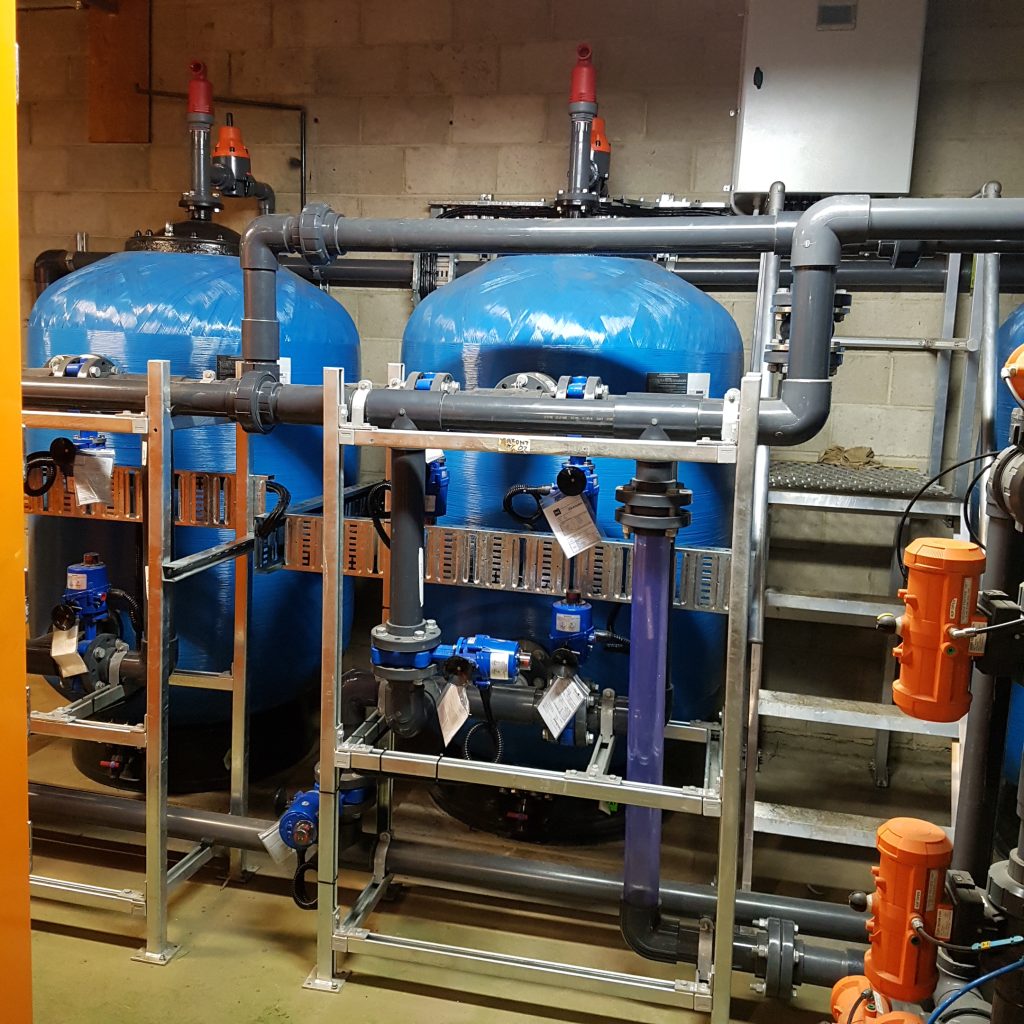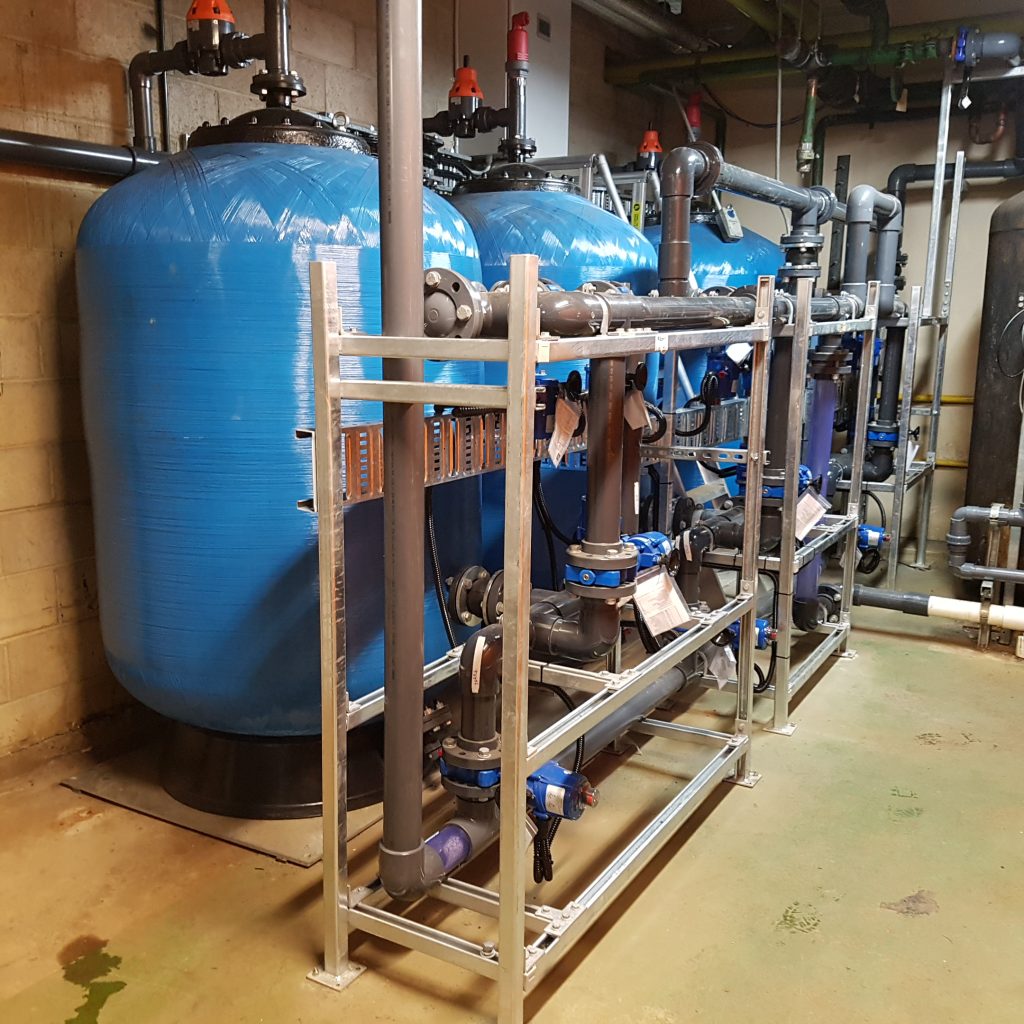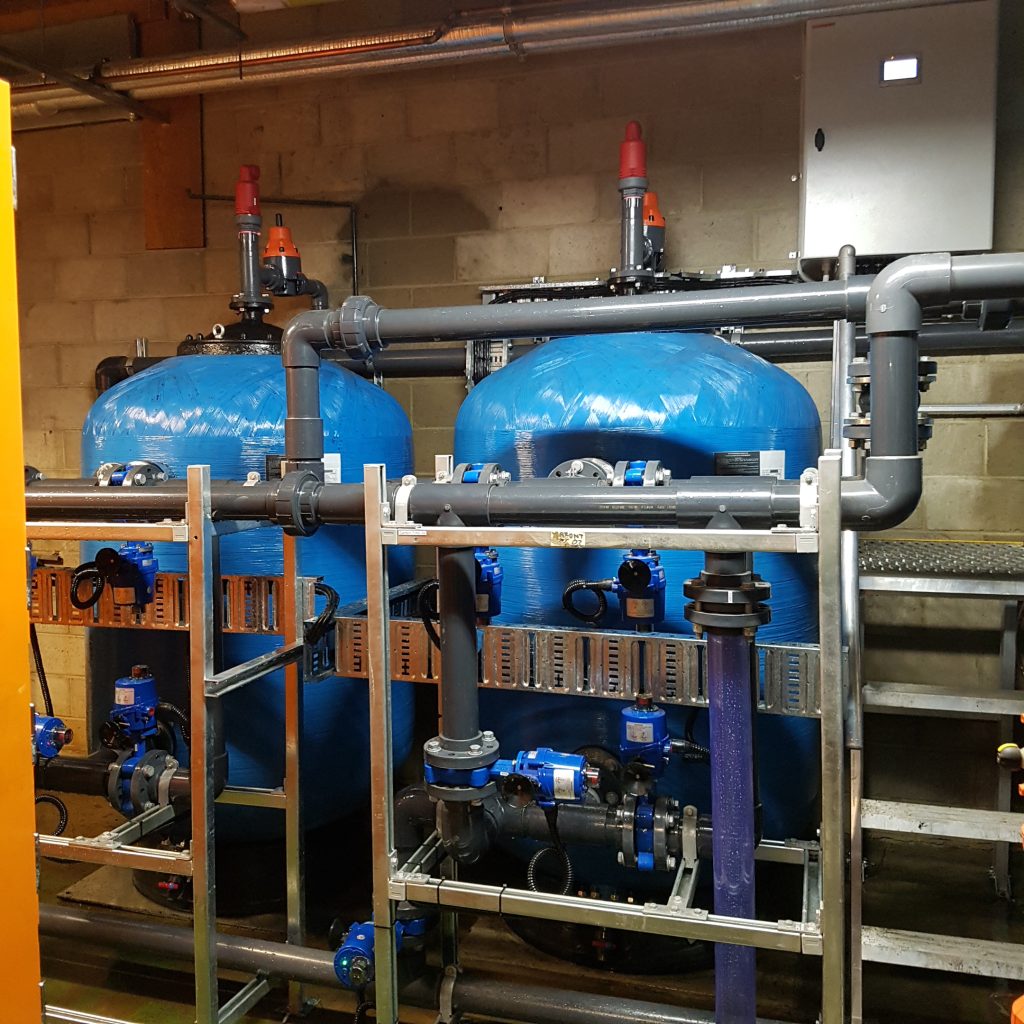Lion’s aging water filtration system at its Smithfield plant was leaking, risking product purity, costly recalls, and operational inefficiencies.
Waterform installed a PLC-automated GAC dechlorination system, cutting water use and optimising efficiency.
The new system reduced waste, increased capacity, and ensured compliance without production downtime.



Water is one of Lion’s most crucial ingredients – whether it’s rain to grow fruit, fresh produce or feed for cows, or as a direct ingredient in its products.
Lion’s processing plant in Smithfield in New South Wales produces a range of fresh and long-life orange juices. Like all juice producers, Lion’s reputation is built around the purity of their product, emphasising the fact that it is healthy and natural.
Water filtration and disinfection is an essential step in juice production because it extends the shelf-life of the product and prevents outbreaks of water-borne pathogens, which can make consumers sick and can place the company at risk of damaging recalls and product liability.
The plant’s ageing water filtration and Granulated Activated Carbon (GAC) de-chlorination plant was nearing the end of its life and had begun to leak, wasting precious water and threatening nearby electrical infrastructure.
Lion knew if the equipment failed, the cost to the business in lost production, damaged infrastructure and potential product spoilage or recall would be unacceptable. It also recognised it could make significant savings long-term by using water more efficiently.
In late 2017, it engaged Waterform Technologies to perform a detailed site audit to make recommendations about the best water saving solutions for its business.
Waterform made many practical suggestions to decrease Lion Co’s water consumption, reduce costs and improve the efficiency of the plant.
The most significant of these was the installation of a new PLC programmed automated GAC dechlorination system at the Smithfield plant. The system was retrofitted without having to remove any existing functional equipment which allowed the plant to continue production without interruption.
It was a tricky job; but who doesn’t love a challenge? The new system was custom designed to fit the small installation space and carefully lifted onto a mezzanine area before it could be installed. Two old rusty steel tanks (out of service) had to cut up in-situ and removed by hand one piece at a time! This allowed more floorspace and the results were well worth it.
Waterform was careful to work around the plant’s existing production schedule, saving Lion time and money by preventing any unnecessary shutdowns or interruptions to production.
Lion’s new FilterPak de-chlorination and filtration plant is already kicking goals. Not only has Lion significantly reduced its water wastage by plugging the leak, it narrowly avoided costly plant downtime due to old equipment. The system also gives extra treatment capacity, allowing it to keep ahead of production as the business grows.
Most importantly, Lion can safely say it continues to meet Australia and New Zealand’s food safety standards, and that consumers can now, as always, rely on the safety and quality of the juice they purchase.
Water is one of Lion’s most crucial ingredients – whether it’s rain to grow fruit, fresh produce or feed for cows, or as a direct ingredient in its products.
Lion’s processing plant in Smithfield in New South Wales produces a range of fresh and long-life orange juices. Like all juice producers, Lion’s reputation is built around the purity of their product, emphasising the fact that it is healthy and natural.
Water filtration and disinfection is an essential step in juice production because it extends the shelf-life of the product and prevents outbreaks of water-borne pathogens, which can make consumers sick and can place the company at risk of damaging recalls and product liability.
The plant’s ageing water filtration and Granulated Activated Carbon (GAC) de-chlorination plant was nearing the end of its life and had begun to leak, wasting precious water and threatening nearby electrical infrastructure.
Lion knew if the equipment failed, the cost to the business in lost production, damaged infrastructure and potential product spoilage or recall would be unacceptable. It also recognised it could make significant savings long-term by using water more efficiently.
In late 2017, it engaged Waterform Technologies to perform a detailed site audit to make recommendations about the best water saving solutions for its business.
Waterform made many practical suggestions to decrease Lion Co’s water consumption, reduce costs and improve the efficiency of the plant.
The most significant of these was the installation of a new PLC programmed automated GAC dechlorination system at the Smithfield plant. The system was retrofitted without having to remove any existing functional equipment which allowed the plant to continue production without interruption.
It was a tricky job; but who doesn’t love a challenge? The new system was custom designed to fit the small installation space and carefully lifted onto a mezzanine area before it could be installed. Two old rusty steel tanks (out of service) had to cut up in-situ and removed by hand one piece at a time! This allowed more floorspace and the results were well worth it.
Waterform was careful to work around the plant’s existing production schedule, saving Lion time and money by preventing any unnecessary shutdowns or interruptions to production.
Lion’s new FilterPak de-chlorination and filtration plant is already kicking goals. Not only has Lion significantly reduced its water wastage by plugging the leak, it narrowly avoided costly plant downtime due to old equipment. The system also gives extra treatment capacity, allowing it to keep ahead of production as the business grows.
Most importantly, Lion can safely say it continues to meet Australia and New Zealand’s food safety standards, and that consumers can now, as always, rely on the safety and quality of the juice they purchase.